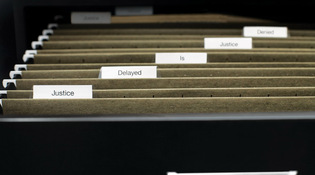 loading
loading
Arts & CultureYou can quote them
Yale law librarian Fred R. Shapiro is editor of the Yale Book of Quotations.
 Photo illustration: John Paul ChirdonView full imageInformation about words and quotations is of two kinds. There are reference works that use traditional research methods (or no research methods at all); and then there are those that employ sophisticated modern research, especially searchable full-text online databases of historical books and periodicals, to trace early uses of phraseology. The well-known expression “justice delayed is justice denied” provides a dramatic illustration of the different results yielded by the two approaches. The Oxford Dictionary of Quotations lists this as a “late twentieth-century saying.” The Oxford Dictionary of Proverbs, a respected historical dictionary with precise dated citations, has as its first use the Nairobi Daily Nation in 1999. How old is the saying, in reality? A few minutes of searching historical full-text databases allows us to zero in on the illustrious Victorian British prime minister William E. Gladstone. Gale’s 19th Century British Library Newspapers and ProQuest’s Historical Newspapers pull up several articles on an important speech by Gladstone to the House of Commons. In the speech, Gladstone announced disestablishment of the Church of Ireland as the platform of the Liberal Party; this would become the key issue of the subsequent election. Gladstone gave the address on March 16, 1868, and its conclusion ran as follows: If we be chivalrous men, I trust we shall endeavour to wipe away the stains which the civilized world has for so long seen, or seemed to see, upon the shield of England in her treatment of Ireland. If we be compassionate men, I hope we shall now . . . listen to that tale of sorrow which comes from her. . . . But, above all, if we be just men, we shall go forward in the name of truth and right, and shall bear this in mind: that, when the case is ripe and the hour has come, justice delayed is justice denied. The newspapers record “loud cheers” at the end of the speech. Was Gladstone, then, the originator of a famous quotation that later became proverbial? That would seem to be a reasonable conclusion, but theories given life by the databases can also be killed by the databases. Searching another powerful Gale product—Sabin Americana, 1500–1926—we find an earlier occurrence. An April 1842 article by J. E. Morse in the Louisiana Law Journal, titled “Observations on the Present Judiciary System, in the Western Districts of the State of Louisiana,” states: If it be admitted, that the State does not prosecute vindictively, but merely to warn and hold up her punishments as a beacon to others, then it is a most important requisite, that the penalty should speedily follow the commission of crime. If in civil matters “justice delayed is justice denied,” in criminal cases tardy punishments are worse than useless. Given this 1842 evidence, I believe “justice delayed is justice denied” was a proverb dating from the early nineteenth century or before, which was then popularized by the Gladstone speech. The thought behind the proverb is presumably much older. In the Yale Book of Quotations, I cross-reference to this line: Our law says well, “To delay justice, is injustice.”—William Penn, Some Fruits of Solitude (1693) Thus we return to the other great theme of this column besides the importance of research: there is nothing new under the sun. This proverb did derive from a famous quotation—Ecclesiastes 1:9.
The comment period has expired.
|
|